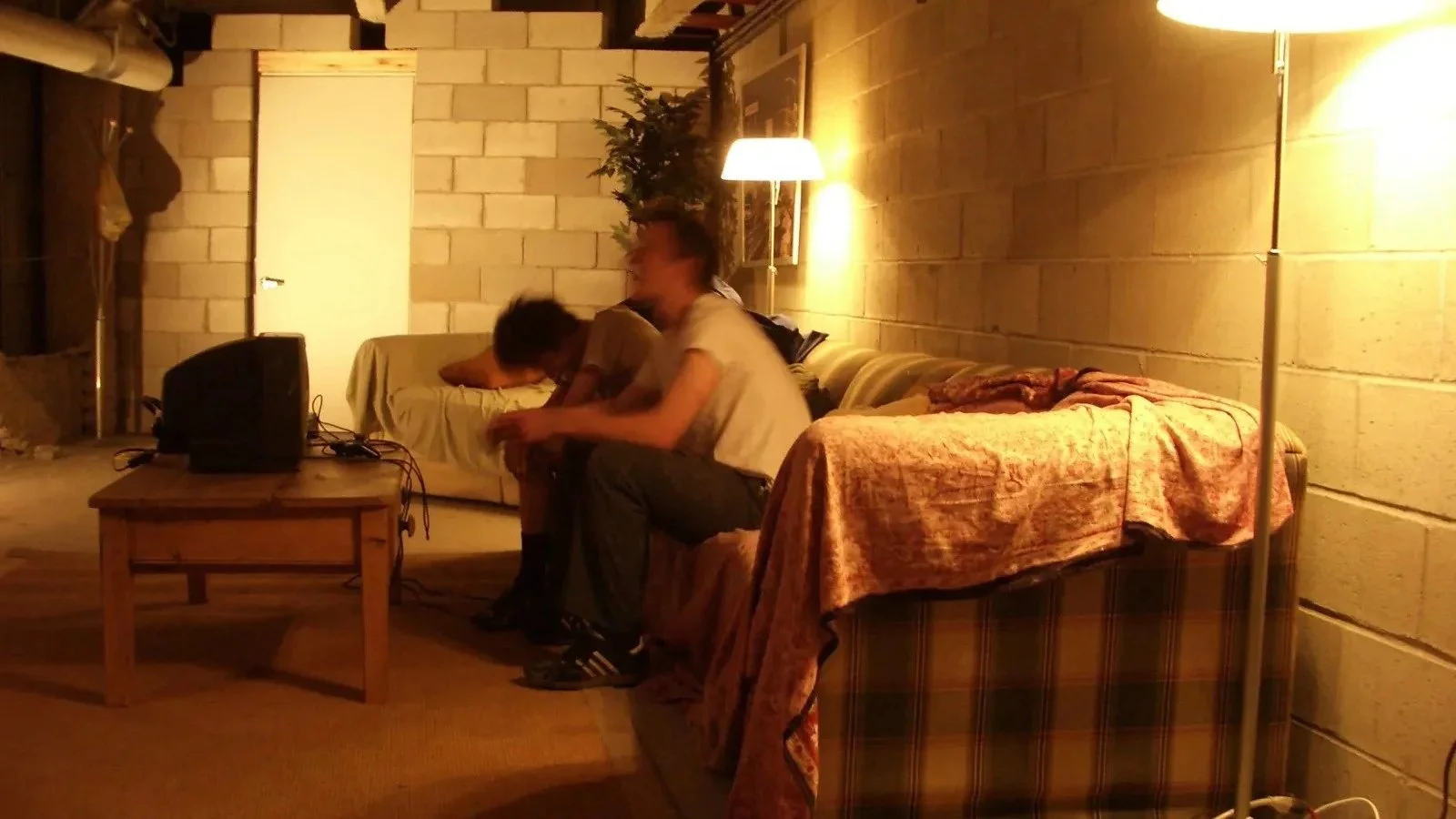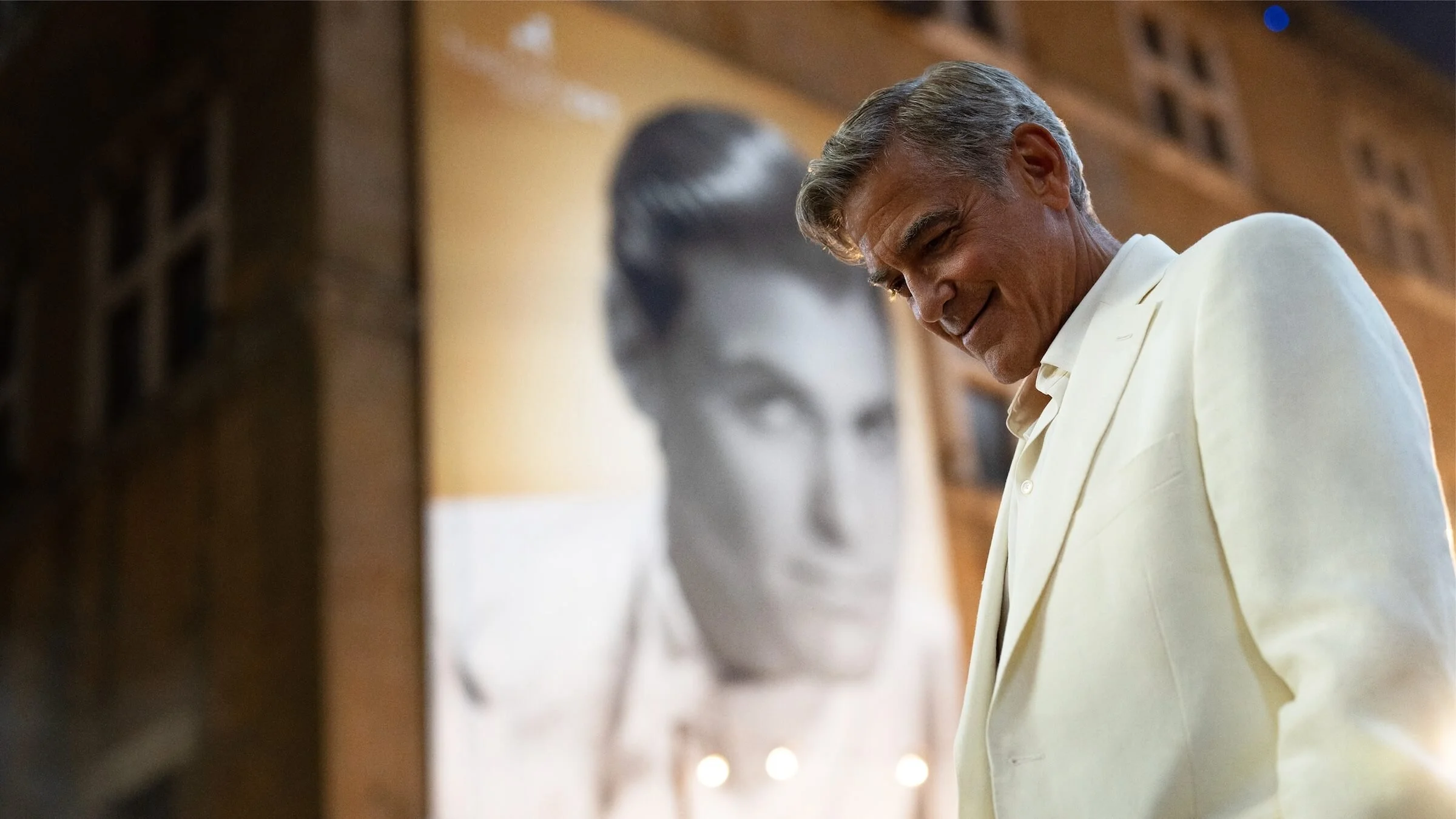Review: X (2022)
Indie horror auteur Ti West loves a good slow burn. At his best, such as in 2009’s The House of the Devil, West patiently builds towards a typically-violent horror climax, withholding in such a way that the tension becomes unbearable. At his worst, this tendency to underplay early scenes can lead to tedium, such as in the ultra-low budget Trigger Man (2007). Luckily, his new feature, X (as in X-rated), which mixes a Boogie Nights-style behind-the-scenes look at 1970s porn with a hillbilly slasher like The Texas Chain Saw Massacre, is closer to The House of the Devil than Trigger Man. It’s a film that spends over half its runtime charting the relationships and anxieties of its central characters, the cast and crew of a low-budget porno called The Farmer’s Daughters, before cranking up the grisly violence and vicious kills that are demanded of a slasher. The result is a nasty, entertaining slasher with well-developed characters and some surprising moral commentary.
It’s funny how certain movies can seem to talk to each other due to being released around the same time. In this sense, you understand what X does right by comparing it to the recent Texas Chainsaw Massacre sequel on Netflix, which came out a few weeks ago. Texas Chainsaw Massacre shows how a slasher that doesn’t take the time to develop its characters doesn’t get the same tension or payoff when those characters die on screen. If you don’t care about the characters, why should you care about them dying?
West understands this, so in X he takes his good sweet time developing the crew of aspiring porn stars and filmmakers. These characters include Mia Goth’s wannabe starlet Maxine, her boyfriend Wayne (Martin Henderson), who funds the picture, indie filmmaker RJ (Owen Campbell) and his boom operator and girlfriend Lorraine (Jenna Ortega), and porn pros Jackson (Scott Mescudi a.k.a. Kid Cudi) and Bobby-Lynne (Brittany Snow). This 1979 crew of young, hungry, and horny Houstonites head to a backwater farm in Texas, rent the back cabin, and secretly film a porno. RJ thinks that the “authenticity” of the setting will give the film extra production value, while Wayne just knows that the opportunity to put Maxine, Jackson, and Bobby-Lyne together in a room is all he needs to make some smut that people want to watch.
There are many jokes throughout the opening half of X about the tension between RJ’s desire to add some art to porn (a nod to Burt Reynolds’ Jack Horner in Boogie Nights) and Wayne’s commercial instincts. Other moments are played for broad humour—there’s a nighttime silhouette of a naked Jackson answering the cabin door that is a hilarious sight gag—or allow us to witness the anxieties of these characters, especially Maxine. West and his crew are playing with tried-and-true conventions here, but they’re doing so with skill and deliberation, painting clear portraits of who these people are, what they want, and what aspects of their personality might stand in the way of them getting what they want.
And in the midst of it all, he’s tightening the noose around them as he follows Howard and Pearl (Stephen Ure and an actress I don’t want to mention here lest I ruin the end credits surprise), the decrepit hillbilly owners of the farm who aren’t aware of the porn shoot occurring, but who seem terrifyingly drawn to the brazen sexuality of the people staying in their back cabin. If the comedic tension of the film is between RJ and Wayne, art versus smut (which the film itself bounces back and forth between), then the dramatic tension is between provoking lust in others and being unable to control how others act on that lust.
In an early scene, Wayne enthusiastically mentions the commercial promise of the home video porn market in the late 1970s and says that if you can allow people to satisfy their sexual lusts in the privacy of their own homes, you can make a killing. But the danger of lust is that you cannot control how other people channel it. This tension plays out between the characters when Lorraine, the mousey, meek girlfriend of RJ pivots from her prudish aversion to porn towards wanting to act in a scene with Jackson. RJ is appalled, but has to go along with it as Wayne pressures him to think about the movie first and his relationship problems second. The scene of RJ and Lorraine arguing about her desire to perform in the porno is the movie in microcosm. RJ’s arousal turns to anger and then to fear and disgust as he realizes that the lust that the porno has provoked in Lorraine is now out of his control.
This scene immediately precipitates the beginning of the carnage that Pearl and Howard will unleash on these young people as a means to satisfy their own sexual frustations. The quick pivot taps into the moralism of horror, where the unaware and often morally questionable actions of young people make them unwitting victims of killers who feed off their actions. You could make a reactionary argument that the film wants to punish the “free love” and sexual liberation of the characters, but such an argument is more a comment on the structures of the horror genre as a whole than what West and company are doing in X in particular. Moral action never exists in a vacuum in horror. Every action has unwitting moral and physical consequences.
Furthermore, West complicates any reactionary moralism by intercutting a sermon throughout the film, which plays on a black and white TV in Howard and Pearl’s home. In the sermon, the preacher warns against the perversions of the world, but there’s an added irony that the killers are the ones who consume this ideology of self-denial, only to be overwhelmed by their repression and take their frustrations out on others. The porn actors’ lives are saturated with sex, but they never take it seriously, while those who deny sexual pleasure are constantly fixating on what they are denied; the one group is oblivious to the consequences of their sexuality, while the other is consumed and controlled by the sexual impulses they repress.
All this tension, between what the porn crew thinks they want and what they get, between the sexual liberation of the young people and the repression of the old farmer couple, explodes in the final half of the film. West patiently dispatches the characters in brutal ways, taking his sweet time building to kills that feel dreadfully, painfully inevitable. A moment involving a pitchfork and some holes in a barn wall is particularly gruesome. Moments cross the line into sheer nastiness, but that’s the point of a horror film like this, which delivers slasher thrills while also offering some provocative commentary on the impulses that movies, and horror movies in particular, are supposed to satisfy.
I’ve read some takes on X that are morally repulsed by the film, by the deliberate swing from lusty nude scenes to horrifying violence. That repulsion is kind of the point. Horror movies, especially slashers, are meant to be nasty and to cross lines and confront hard questions in ways that other movies cannot. If a horror movie pulls its punches, it doesn’t have nearly the same impact. Sometimes, it has to seem dangerous to do its job. X feels dangerous. It’s provocative. It’s titillating and bloodthirsty, but there’s a queasy feeling to how it links sex and violence. That queasiness is the point. You think you’re getting some cheap thrills, but there’s always a cost to pay.
8 out of 10
X (2022, USA)
Written and directed by Ti West; starring Mia Goth, Jenna Ortega, Martin Henderson, Brittany Snow, Owen Campbell, Stephen Ure, Scott Mescudi.



Joe Carnahan’s cop thriller starring Matt Damon and Ben Affleck is an enjoyable whodunnit.